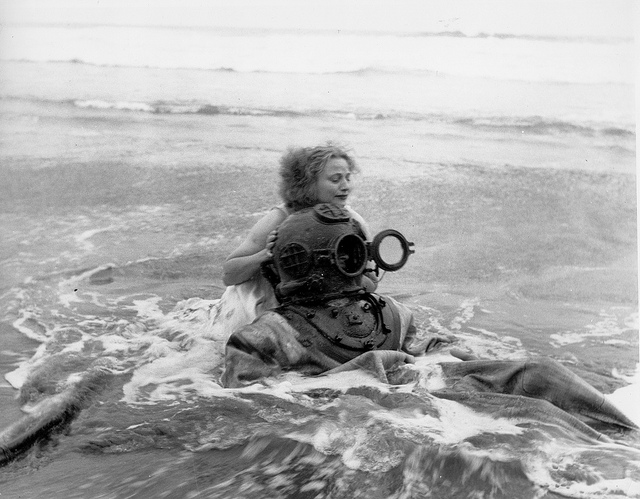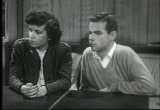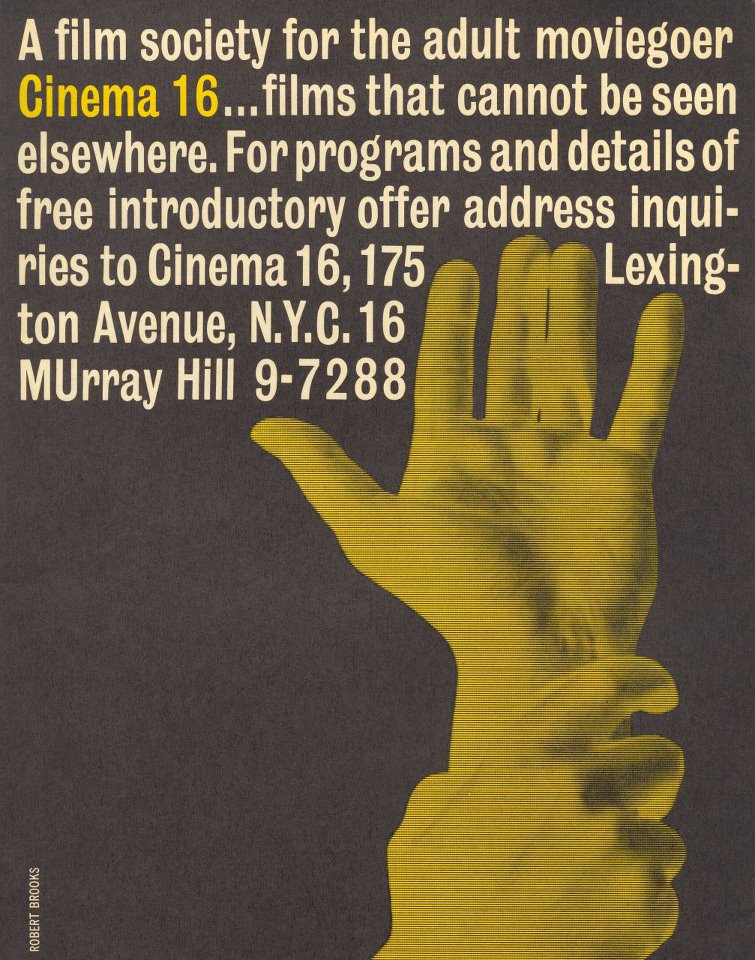

Sidney Peterson, The Lead Shoes
Lester F. Beck, Unconscious Motivation
Film Love and Atlanta Contemporary Art Center present:
Cinema 16, May 1950
Revisiting a radical mid-century American film society
|
|
|
|
Sidney Peterson, The Lead Shoes |
Lester F. Beck, Unconscious Motivation |
Friday, September 19, 2014
7:00 pm at Atlanta Contemporary Art Center
$8 general | $5 student/senior | Free with
ACAC membership
"If you’re looking for the origins of film culture in America, look no further
than Amos Vogel" – Martin Scorsese
It is unlikely that film history has any parallel to Cinema 16. Begun in 1947
Manhattan by film enthusiast Amos Vogel and his wife Marcia, the film society
(named after the artistic and social potential signified by the ready
availability of 16mm film) rapidly became the standard bearer for all films that
– in its famous tagline – "cannot be seen elsewhere." Yet despite its dedication
to noncommercial cinema, at its height in the mid-1950s Cinema 16 was the
largest film society ever in existence. Perhaps no other entity has so impacted the development of alternative film screening practice, from microcinemas to film festivals worldwide. As a tribute to this influential film
society and its founder Amos Vogel (1921 – 2012), Film Love presents an entire
screening originally shown at Cinema 16 in New York in May 1950.
Though Cinema 16 debuted many important filmmakers, including Roman Polanski and
John Cassavetes, perhaps its greatest innovation was the way Amos Vogel curated his programs of short films: powerful, intuitive juxtapositions of
style, subject, genre and eras. In the course of a single evening, avant-garde
films would collide with scientific or psychological experiment films, political
documentaries, and other unclassifiable works, forcing viewers to simultaneously
confront unfamiliar cinematic techniques, unprecedented scientific imagery, and
disturbing revelations about World War II or other recent events. The wild
ruptures were deliberate, for Vogel explicitly saw cinema as a force for change.
Informed by Vogel's radical politics and his experience as a Jewish refugee from
wartime Vienna, Cinema 16 programs were designed, in the words of scholar Scott
MacDonald, to trigger "maximum thought – and perhaps action – on the part of the
audience." The popular success of this approach is still astonishing today: a
typical Cinema 16 program screened to audiences of up to sixteen hundred
people at a time. At Cinema 16, both words in the equation "film society" were
of equal importance.
Cinema 16's May 1950 screening is an outstanding example of Vogel’s programming
range. Oskar Fischinger's masterfully animated and handpainted films screened
next to John Huston's revelatory documentary of a World War II battle and its
effect on an Italian village. Then, Sidney Peterson's aggressively Surrealist
short The Lead Shoes led to the program’s final coup: Unconscious
Motivation, a clinical psychology film in which two subjects are hypnotized
and given a false memory while asleep, then try to process their experience.
War, surrealism, abstraction, and untapped regions of the mind – this 1950
program, with its rich and complex juxtapositions, exemplifies both the
challenges and potential liberations of alternative film.
Program:
The Evolution of the Experimental Film – The Work of Oskar Fischinger:
Absolute Film Study No. 11 (Oskar Fischinger,
1932, 4 min)
Allegretto (Oskar Fischinger, 1936-43, 3 min)
Motion Painting 1 (Oskar Fischinger, 1947, 11min)
The Battle of San Pietro (John Huston, 1945, 32 min)
The Lead Shoes (Sidney Peterson, 1949, 17 min)
Unconscious Motivation (Lester F. Beck, 1949, 39 min)
The Atlanta Contemporary Art Center
535 Means Street NW
Atlanta, GA, 30318
404.688.1970
http://www.thecontemporary.org/
 |
Cinema 16, May 1950
is a Film Love event, curated and hosted by
Andy Ditzler for Frequent Small Meals. Through public screenings and
events, Film Love preserves the communal viewing experience, provides space for
the discussion of film as art, and explores alternative forms of moving image
projection and viewing. Film Love was voted Best Film Series in Atlanta by the
critics of Creative Loafing in 2006, and was featured in Atlanta Magazine's Best
of Atlanta 2009.